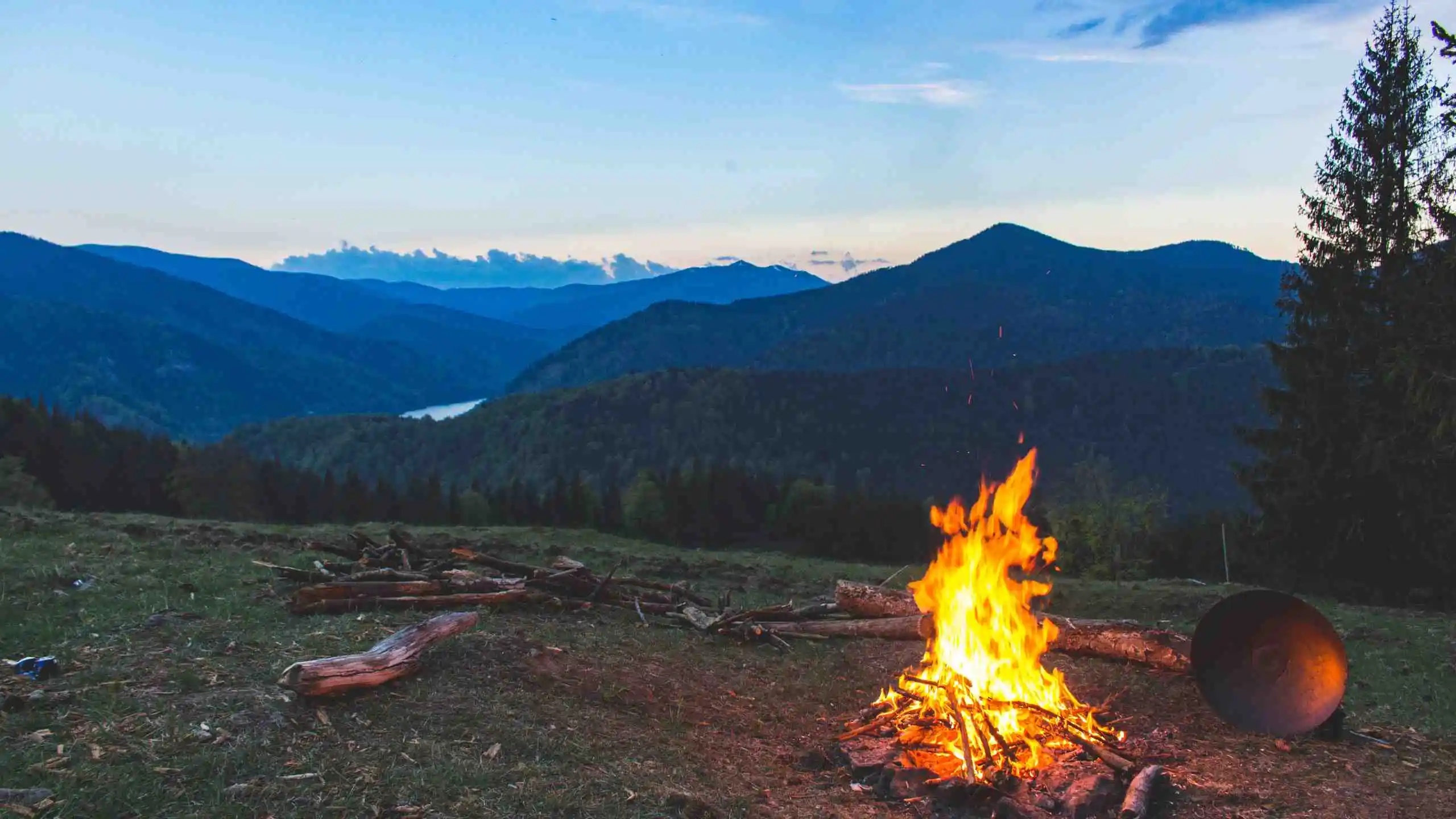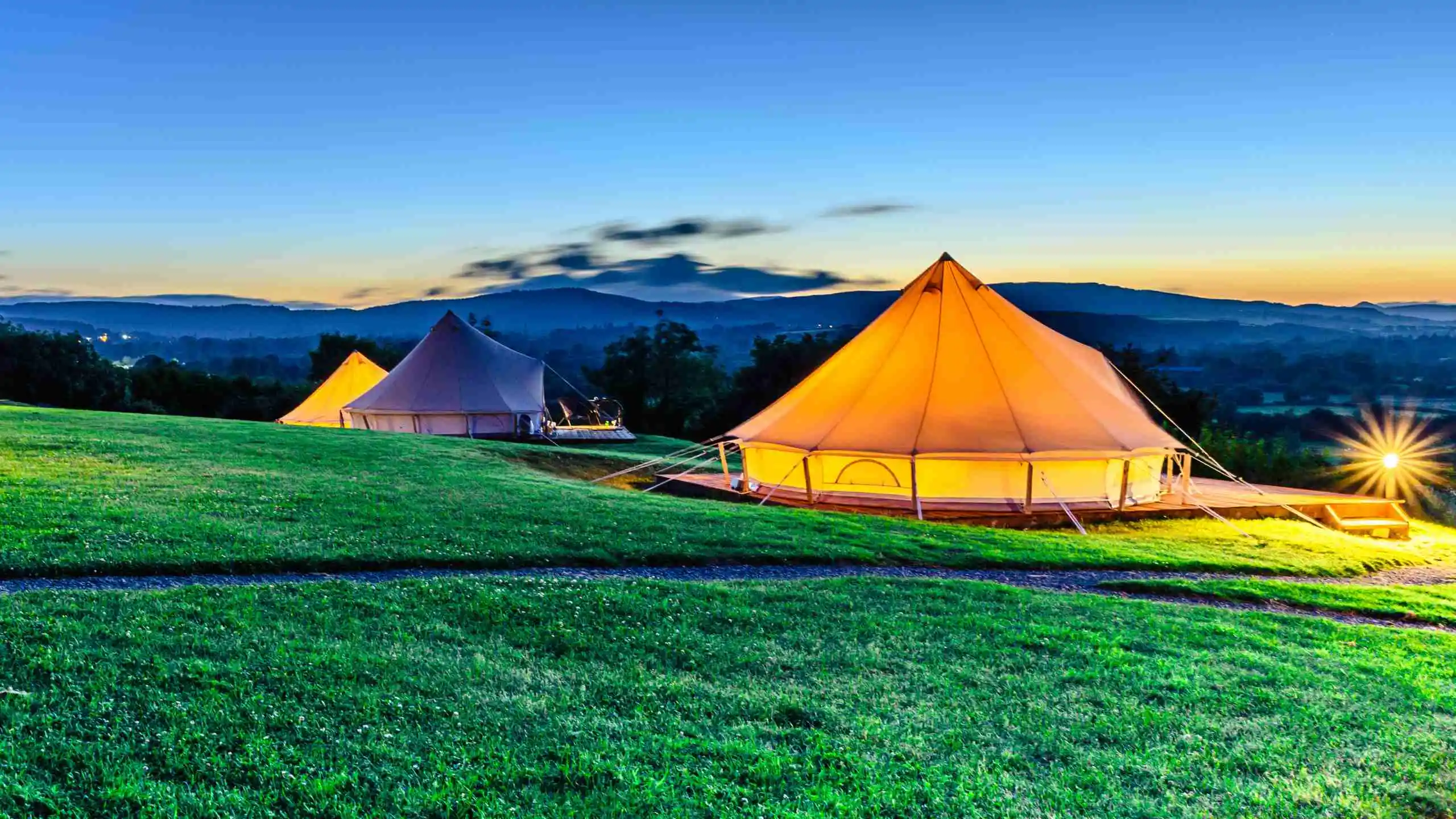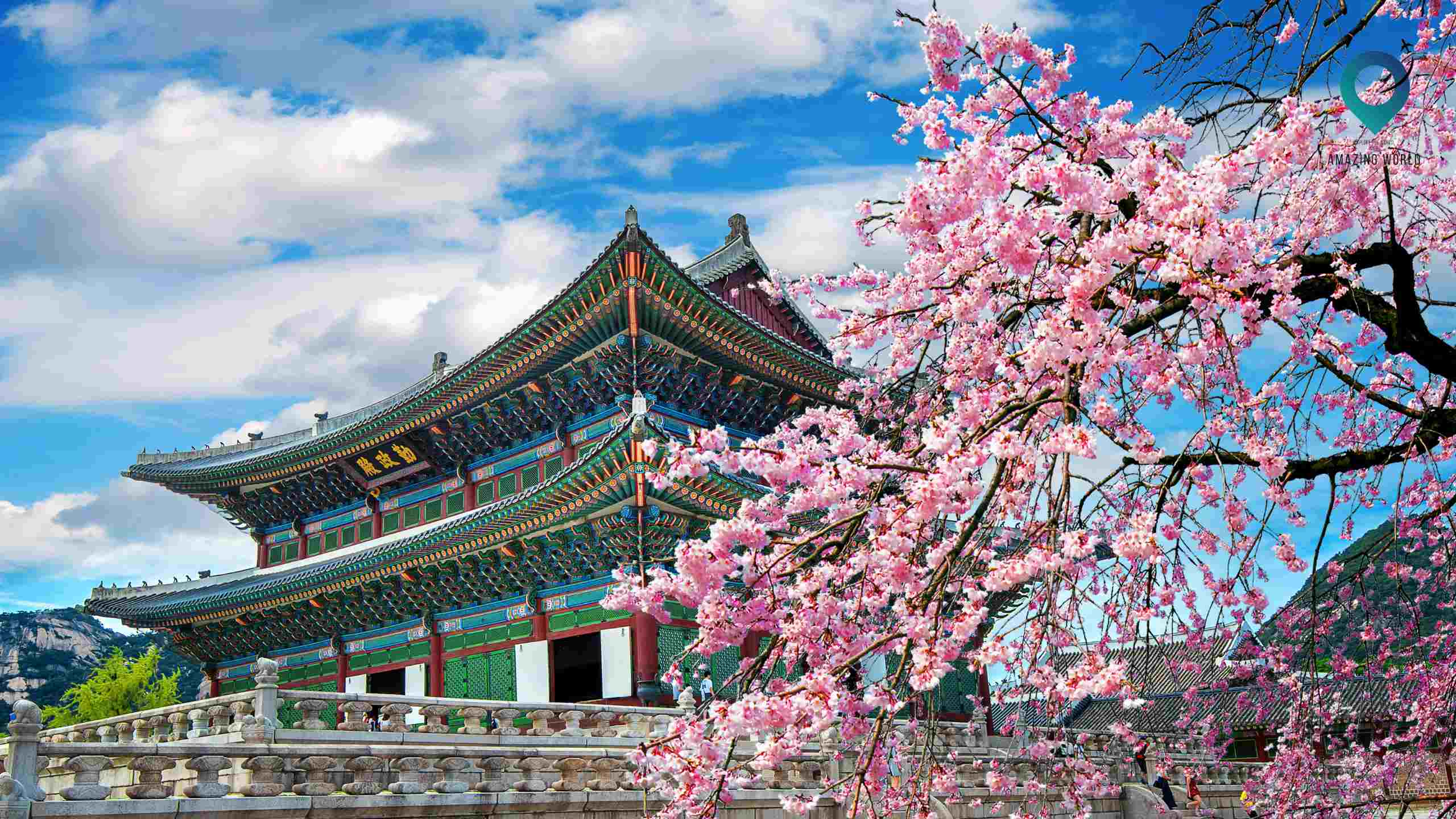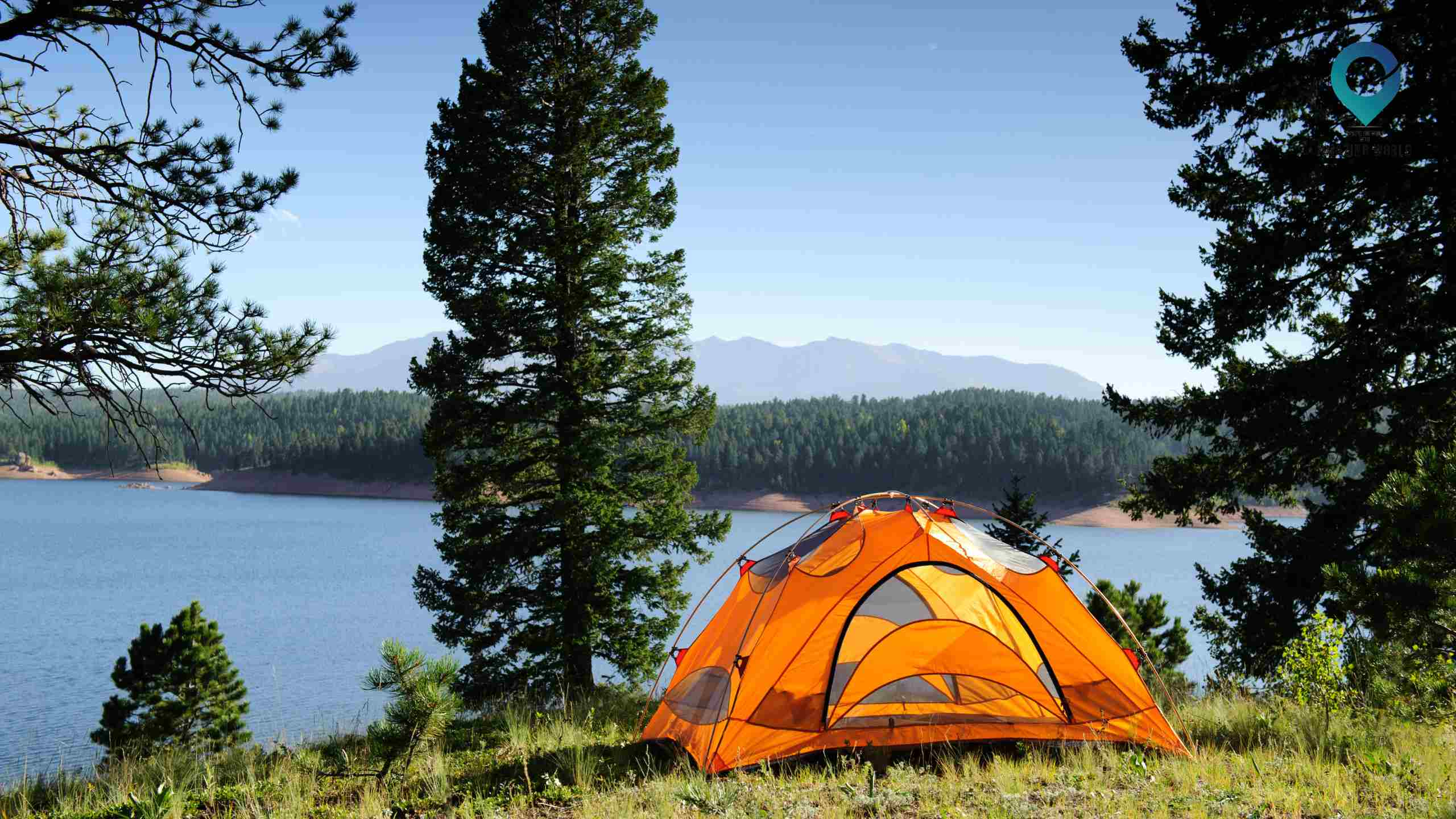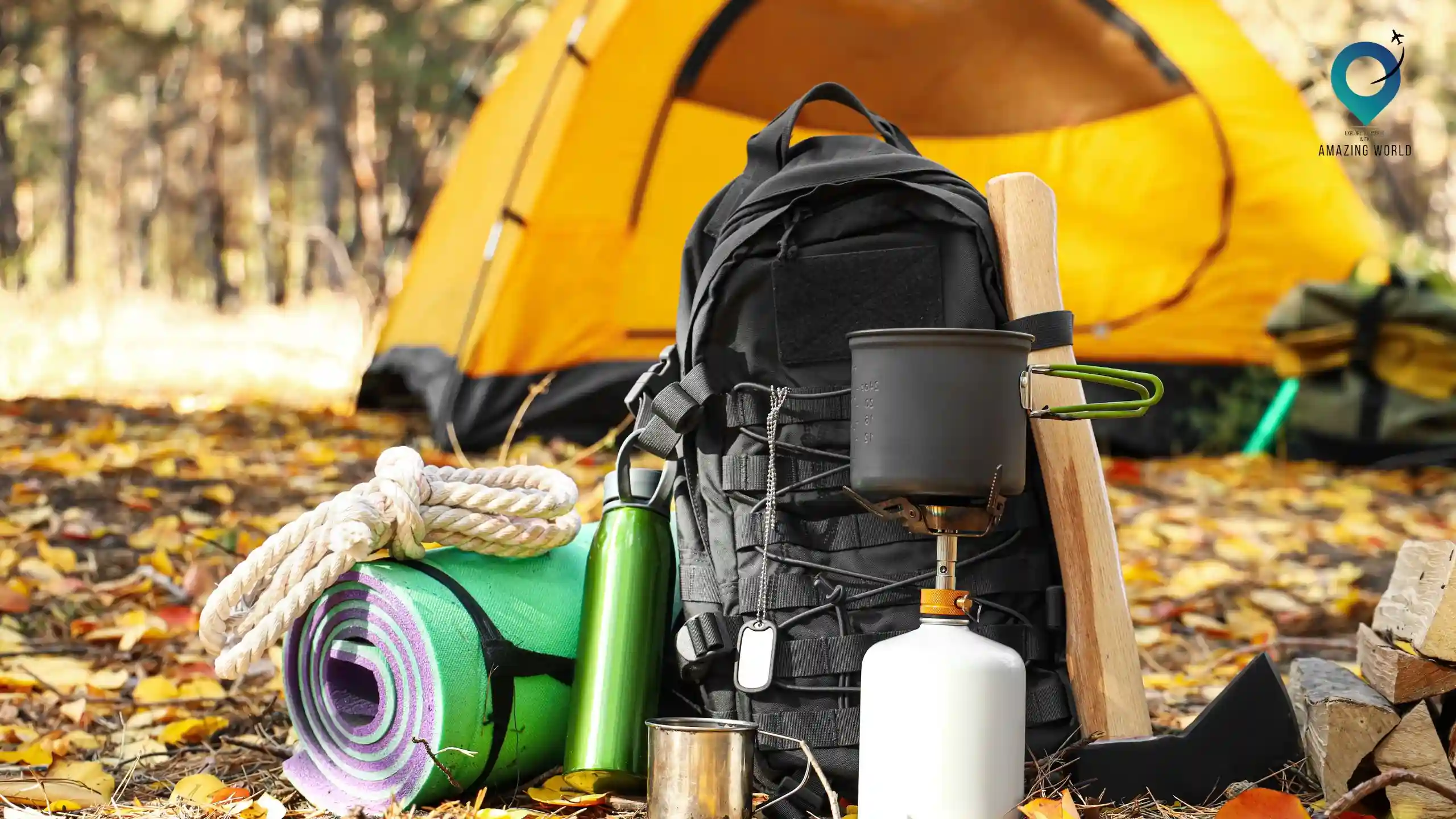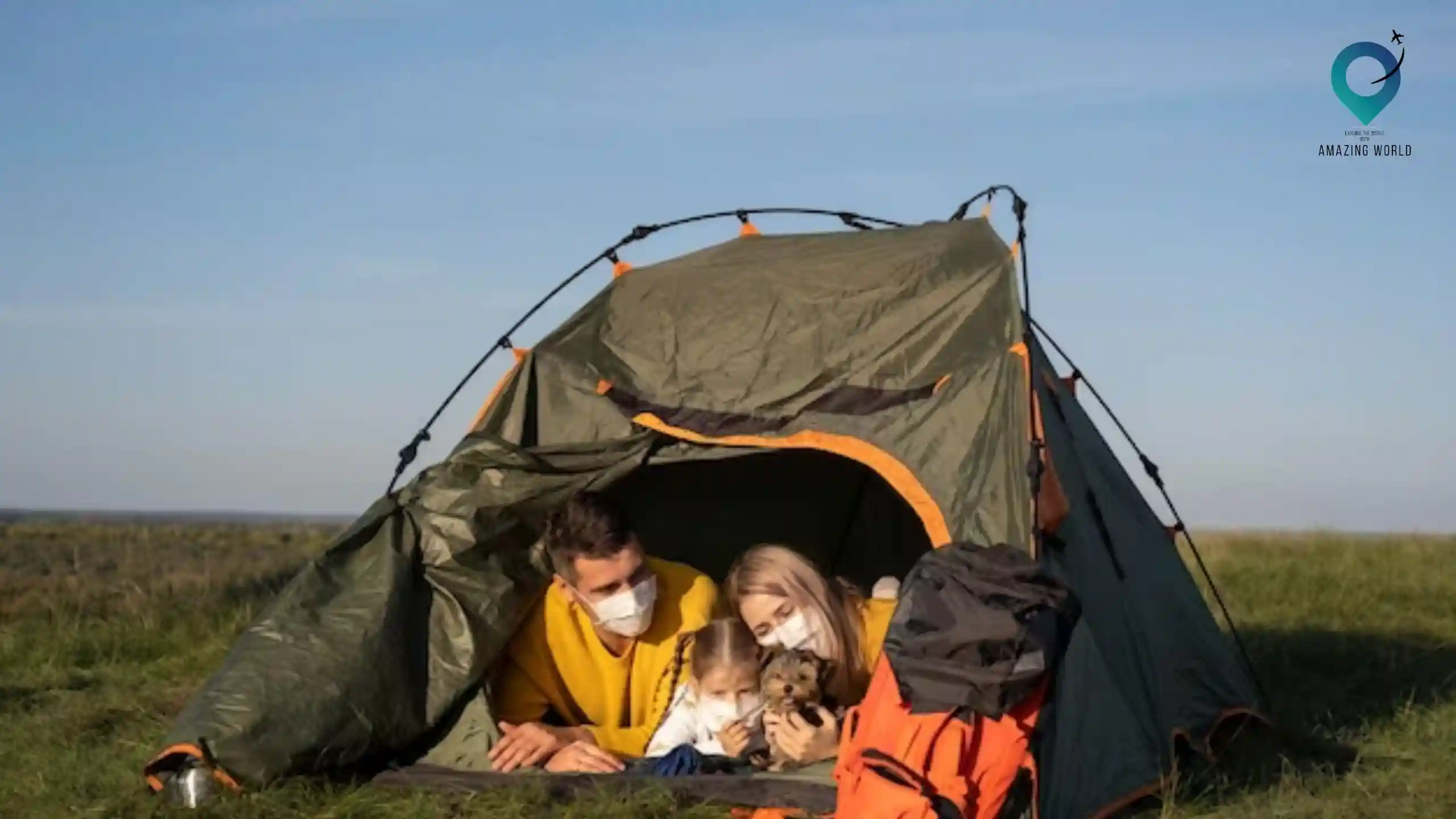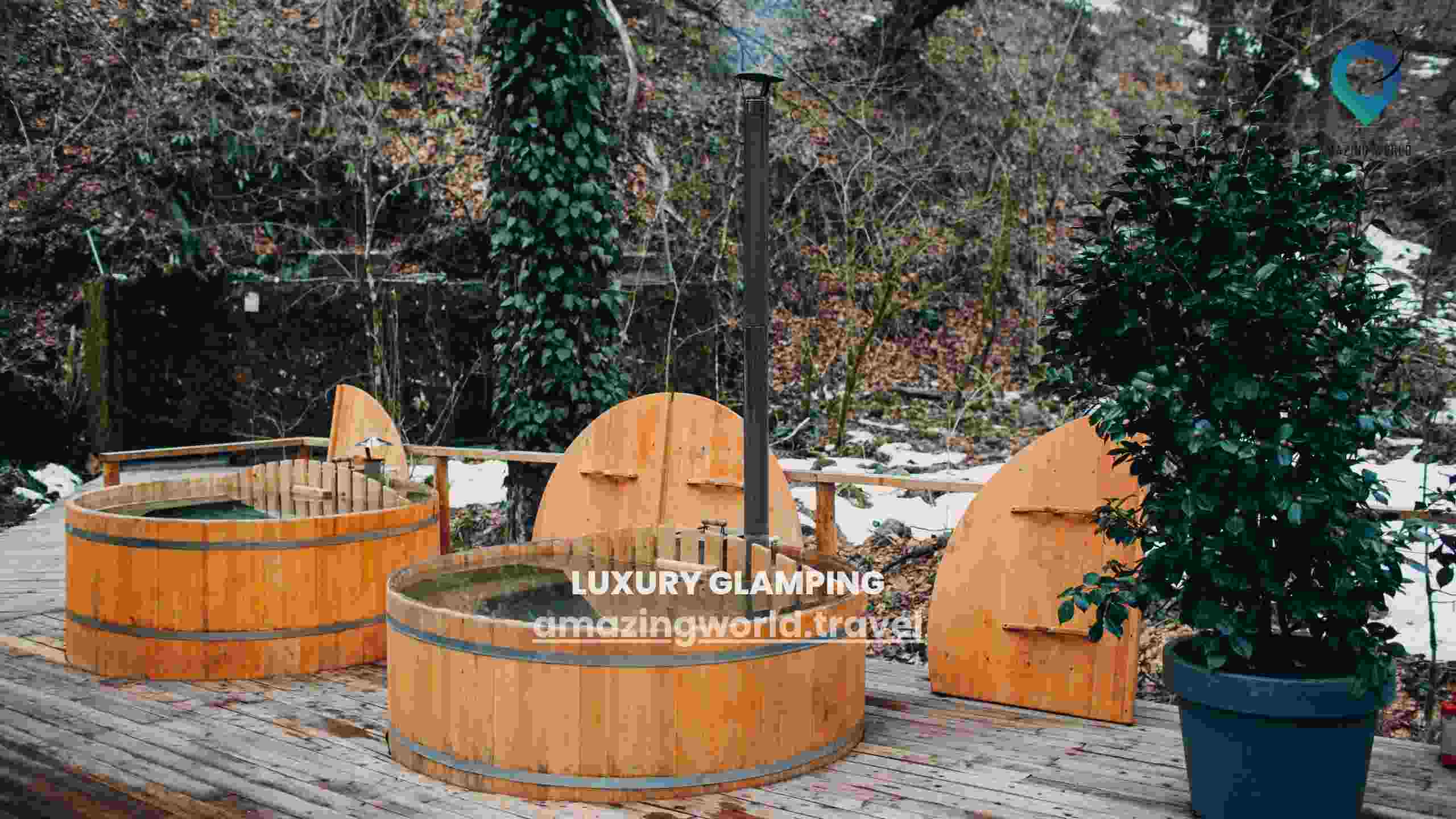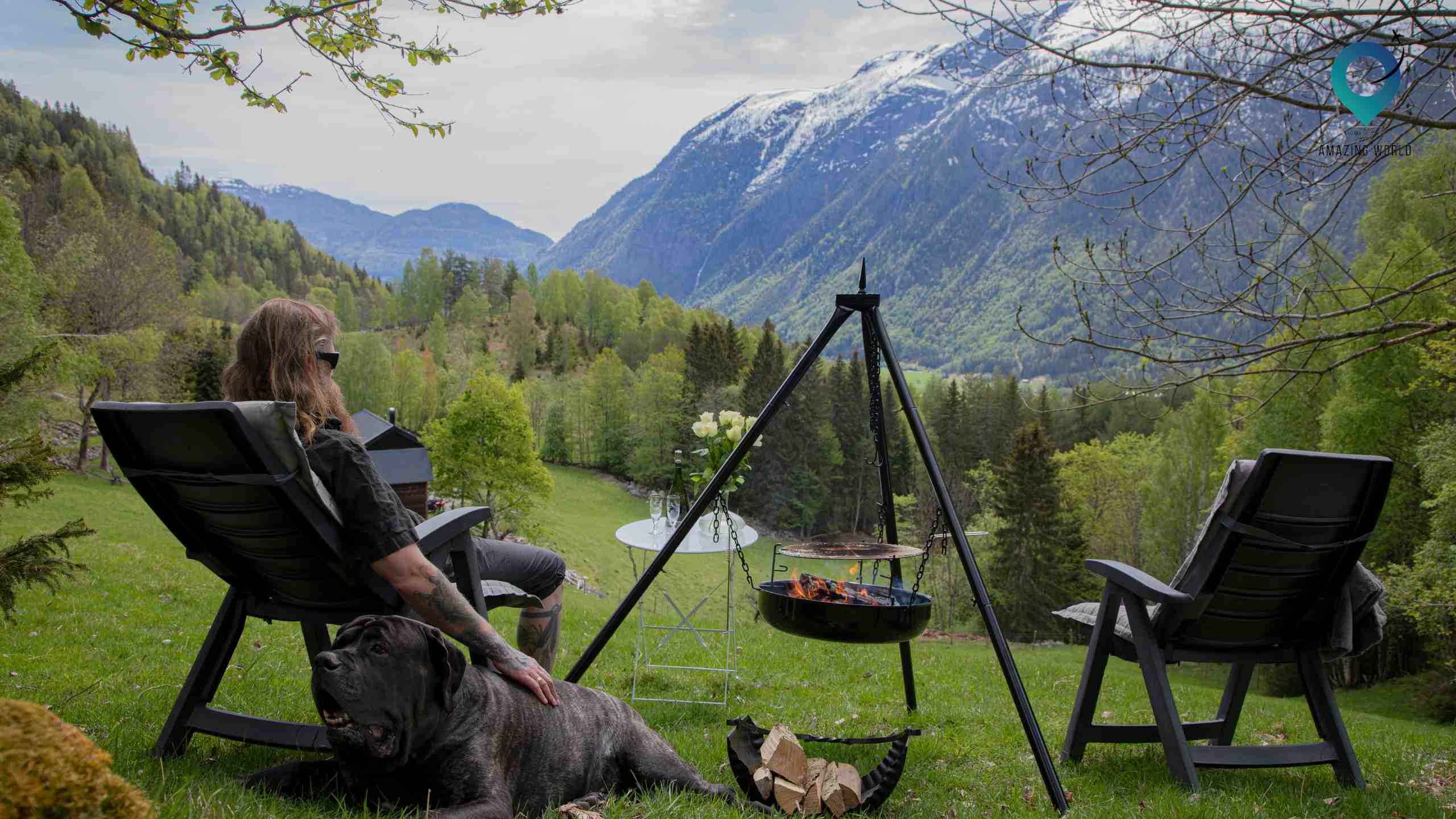Camping vs Glamping: Which is Best for You?
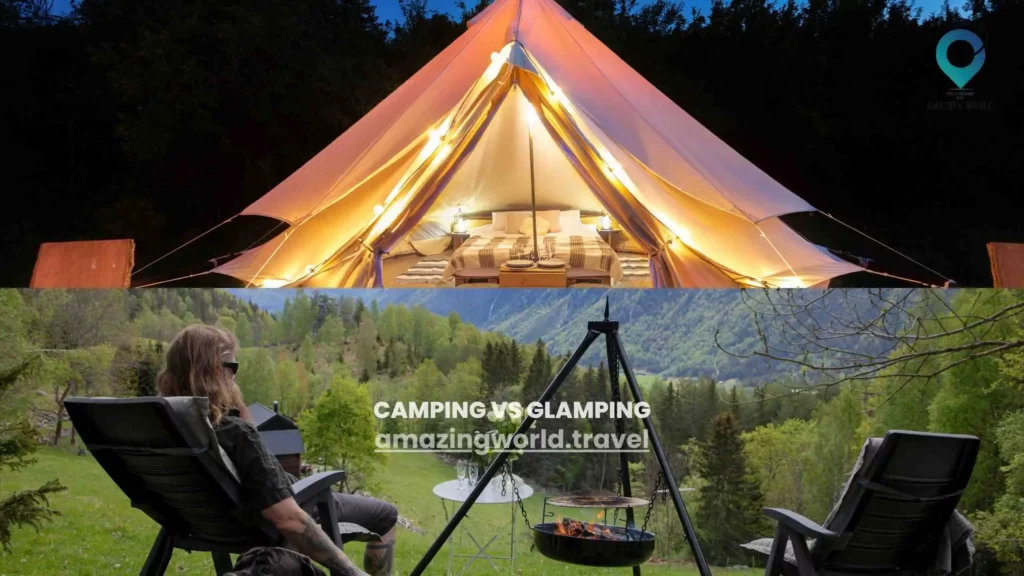
Are you an adventurer seeking the perfect outdoor experience, but the question lingers: camping or glamping? In this guide, we’ll embark on a journey to unveil the secrets of these two distinct approaches to nature immersion. We’ll decipher which option, camping or glamping, best suits your preferences and desires for your upcoming outdoor escapade.
Camping and glamping, both brimming with opportunities to connect with nature, offer contrasting levels of comfort, adventure, and luxury. Whether you’re an intrepid explorer yearning for rugged simplicity or a comfort-seeking traveler craving a touch of extravagance, we’ll help you navigate this delightful dilemma. So, let’s dive into the world of Camping vs. Glamping, and discover which one truly speaks to your inner nature enthusiast.
What is Camping?
Camping is a quintessential outdoor activity that involves temporarily setting up a campsite in a natural environment, such as a forest, by a lake, or in a designated camping area. At its core, camping is about embracing simplicity, self-sufficiency, and an intimate connection with nature. Here’s a more detailed breakdown of what camping entails:
Simplicity: Camping encourages a return to basics. It involves tasks like pitching a tent, starting a campfire, and preparing meals over an open flame or portable stove.
Adventure: Camping offers a sense of adventure as it requires individuals to navigate the challenges and uncertainties of the natural world, including unpredictable weather conditions and encounters with wildlife.
Disconnecting: It provides a unique opportunity to disconnect from the digital world. With limited or no access to technology, campers can fully immerse themselves in the sights and sounds of nature.
Cost-Effective: Camping can be an affordable way to enjoy vacations or weekends away. Once you have the essential camping gear, expenses primarily revolve around food and campsite fees, if applicable.
Self-Sufficiency: Campers need to rely on their survival skills and resourcefulness, making camping a hands-on and empowering experience.
The Advantages of Camping
Nature Immersion: Camping allows you to deeply connect with nature, providing an opportunity to appreciate its beauty and serenity. You can fall asleep under a canopy of stars and wake up to the sounds of birdsong.
Cost-Effective: It’s an affordable way to enjoy outdoor experiences. Once you have the necessary equipment, camping can be relatively low-cost.
Skill Development: Camping fosters valuable outdoor skills. From setting up a tent to starting a fire and navigating trails, you’ll acquire practical knowledge that can be useful in various situations.
Family Bonding: Camping is an excellent way for families to bond. Shared experiences in the outdoors create lasting memories and bring family members closer together.
The Disadvantages of Camping
Lack of Comfort: Camping can be uncomfortable, especially for those unaccustomed to sleeping on the ground. Sleeping on an air mattress or pad can help, but it’s not quite the same as a plush bed.
Weather Dependency: When you camp, you are at the mercy of the weather. Rain, storms, or extreme temperatures can impact your experience and comfort.
Basic Amenities: Campsites typically offer basic amenities, such as communal restrooms and water sources. While this adds to the adventure, it may not suit those accustomed to more luxurious facilities.
What is Glamping
Glamping, a fusion of “glamorous” and “camping,” represents a more refined and luxurious way to experience the great outdoors. It offers a departure from traditional camping by providing the comforts of home while immersing you in natural surroundings. Let’s delve into the world of glamping and what it entails:
Comfort: At the core of glamping is comfort. Unlike traditional camping, which often involves roughing it, glamping provides plush accommodations designed for relaxation and luxury.
Amenities: Glamping sites boast modern amenities such as private bathrooms, electricity, heating or cooling systems, and sometimes even Wi-Fi. These conveniences elevate the experience.
Gourmet Dining: Many glamping experiences include gourmet dining options. You can indulge in delicious meals prepared by onsite chefs, often using fresh, locally sourced ingredients.
Scenic Locations: Glamping sites are meticulously chosen for their breathtaking natural surroundings. Whether perched on a mountaintop, nestled in a forest, or overlooking a serene lake, glamping offers stunning vistas.
Less Work: Unlike traditional camping, where you might spend time setting up a tent, building a fire, and preparing meals, glamping requires minimal effort. Everything is prepared and ready upon your arrival.
The Advantages of Glamping
Luxury and Comfort: Glamping provides the best of both worlds: the beauty of nature and the comfort of a well-appointed accommodation. You can sleep in a comfortable bed, enjoy climate control, and have all the amenities you need.
Convenience: Glamping is incredibly convenient. You don’t need to worry about setting up camp, starting fires, or roughing it in any way. Your experience is designed for relaxation and enjoyment.
Unique Experiences: Glamping can offer unique accommodations like treehouses, yurts, geodesic domes, or airstream trailers. These distinctive options make for memorable experiences.
Perfect for Non-Campers: Glamping is ideal for those who want to experience the outdoors without the challenges of traditional camping. It’s a great way to introduce non-camping enthusiasts to the joys of nature.
The Disadvantages of Glamping
Cost: Glamping is generally more expensive than traditional camping. The luxurious accommodations and added amenities come at a premium price.
Less Authentic: Some argue that glamping may not provide the same sense of adventure and self-sufficiency as traditional camping. It’s a different experience, focused more on relaxation and comfort.
Availability: Popular glamping sites can book up quickly, especially during peak seasons. Planning and booking well in advance are often necessary to secure your preferred dates and accommodations.
Choosing Between Camping and Glamping
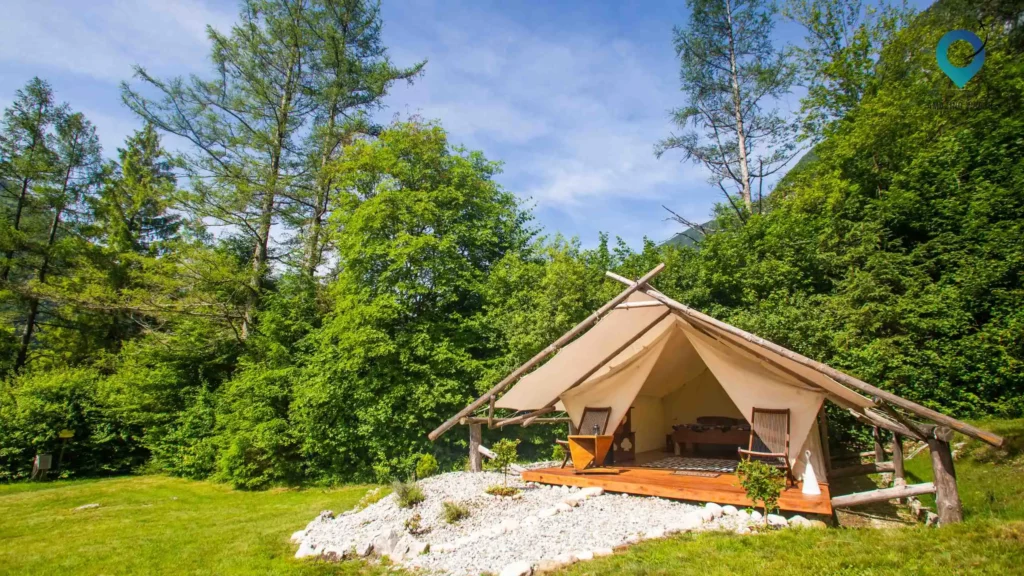
Choosing between camping and glamping ultimately depends on your personal preferences, budget considerations, and the type of outdoor experience you desire. Let’s explore the key factors to consider when deciding which option is best for you:
Budget Considerations
Camping:
- Ideal for budget-conscious travelers.
- Camping requires minimal expenses for essential gear like tents and sleeping bags.
- Campsite fees are often more affordable compared to glamping accommodations.
Glamping:
- Generally, more expensive than camping.
- The luxurious accommodations and added amenities come at a premium price.
- Expect higher costs for gourmet dining and unique experiences.
Adventure and Nature
Camping:
- Perfect for adventure seekers who relish the challenge of navigating the great outdoors.
- Camping allows you to immerse yourself in nature, embracing its unpredictability.
- You’ll experience the joy of setting up your campsite and cooking over an open fire.
Glamping:
- Suited for those who prefer a comfortable and nature-centric experience.
- While you’re still in a natural setting, glamping offers a more relaxed and controlled environment.
- You can enjoy the beauty of nature without the challenges of traditional camping.
Comfort and Amenities
Camping:
- Provides a back-to-basics experience with limited amenities.
- Campers should be prepared for less comfortable sleeping arrangements, like sleeping bags and air mattresses.
- Access to amenities such as showers and toilets may be communal and basic.
Glamping:
- Offers a luxurious and comfortable stay with modern conveniences.
- Accommodations can range from stylish tents with plush beds to cabins with private bathrooms.
- You’ll have access to electricity, heating or cooling systems, and sometimes even Wi-Fi.
Packing and Preparation
Camping:
- Requires careful packing of essential gear and supplies, including tents, sleeping bags, cooking equipment, and food.
- Campers need to plan meals, gather firewood (if applicable), and prepare for outdoor cooking.
Glamping:
- Involves minimal packing since most necessities are provided by the glamping site.
- You won’t need to worry about lugging around heavy camping gear or preparing elaborate meals.
Environmental Impact
Camping:
- Typically has a lower environmental footprint as it promotes self-sufficiency.
- Campers are encouraged to leave no trace, minimizing their impact on the environment.
Glamping:
- May have a higher environmental impact due to the luxurious amenities and infrastructure.
- However, some glamping sites prioritize sustainability and eco-friendly practices.
Conclusion
The choice between camping and glamping hinges on your individual preferences, budget considerations, and the kind of outdoor experience you aspire to have. Camping is an excellent option for those who are budget-conscious and crave an adventure that involves self-sufficiency, embracing simplicity, and disconnecting from the digital world. It’s an opportunity to acquire valuable outdoor skills while immersing yourself in the raw beauty of nature.
On the other hand, glamping is a more luxurious and comfortable approach to enjoying the outdoors. While it comes with a higher price tag, it provides the best of both worlds—nature and modern conveniences. Glamping is perfect for individuals or families who want to experience the wonders of the natural world without sacrificing comfort. It offers gourmet dining, unique accommodations, and a more relaxed and convenient outdoor experience.
How much did you like Our detailed Camping vs Glamping: Which is Best for You? Review Also, please share these Blogs with your friends on social media.
Related Article –
Camping vs Glamping FAQs
Can I clamp on a tight budget?
Glamping is generally more expensive, but some budget-friendly options exist. Look for off-peak deals or more rustic glamping experiences.
Is camping safe for families with young children?
Camping can be safe and enjoyable for families, but it requires careful planning and supervision.
Can I camp or glamp in extreme weather conditions?
It’s best to avoid extreme weather conditions for both camping and glamping to ensure a safe and enjoyable experience.
Do I need to be an experienced camper to enjoy camping?
No, camping is suitable for beginners, but it’s essential to learn basic outdoor skills and be prepared.
Are glamping sites pet-friendly?
Some glamping sites are pet-friendly, but it’s essential to check with the specific site in advance.
How do I book a camping or glamping site?
You can book camping and glamping sites through various online platforms, campsite reservations, or directly with the site operators.

Meet David Hoper, a passionate travel Blog writer with 7+ years of experience in travel content. Through his exemplary storytelling and engaging narratives, he shares his experiences and brings destinations to life. With a keen eye for detail and a love for exploration, he has cultivated a diverse portfolio of travel blogs that inspire and inform readers worldwide.
